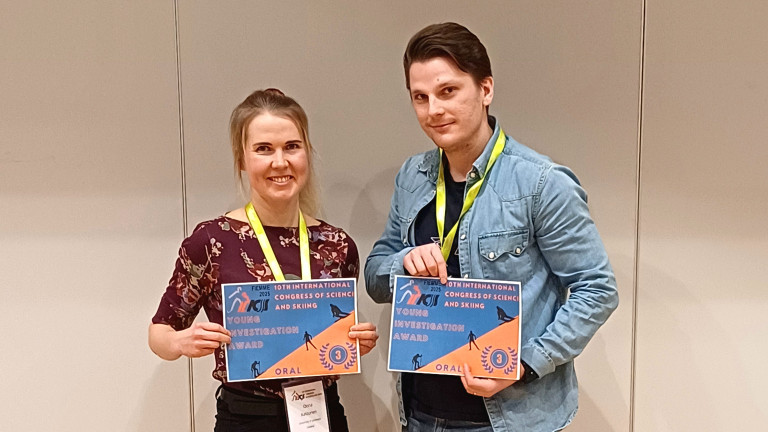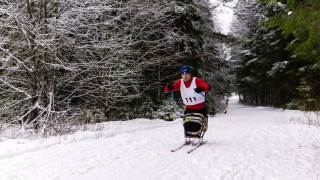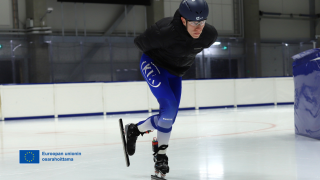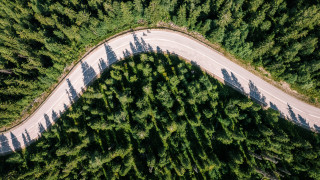ICSS offered a comprehensive overview of the latest research in the science of skiing - JYU-Vuokatti researchers were successful in the Young Investigators Competition
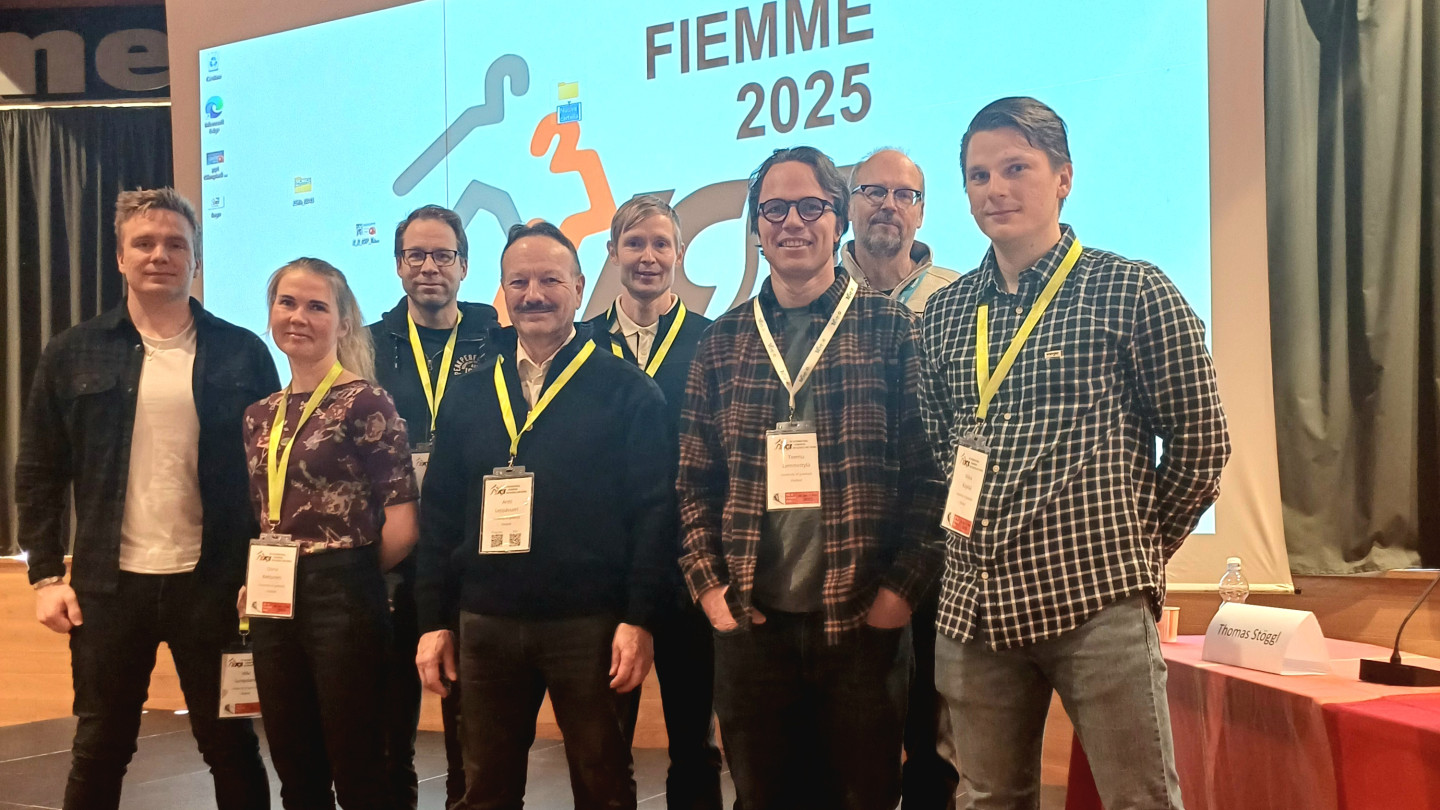
The International Congress on Science and Skiing (ICSS) brought together the international scientific community involved in skiing research in Val di Fiemme, Italy. In the event's almost 30-year history, this was the first time Italy has hosted the Congress.
The congress series, which started in 1996 in St. Christoph am Arlberg, Austria, has become a major international arena for science of skiing. Under the original leadership of ICSS founder Professor Erich Müller and the University of Salzburg, the ICSS has consistently covered a wide range of skiing disciplines. In his honorary speech, Müller recounted the origins and early history of the ICSS.
"Science of skiing needed dialogue. There was a huge need to share knowledge, so above all we wanted to bring together experts in the field."
The first four invited keynote speakers were Professors Joachim Mester, Benno Nigg and the late Professors Paavo Komi and Bengt Saltin. Saltin and Komi in particular, alongside Müller himself, played a major role in promoting the ICSS.
"The science of skiing was not international, and we wanted it to make it international. Now it is also gaining acceptance inside the international scientific community."
The mission of the ICSS is to continue to improve and promote the knowledge provided by science of skiing. It can be considered successful in this task, as the number of publications in this field has increased enormously over the last thirty years.
The congress in Val di Fiemme featured four keynote lectures, seven invited lectures, more than 70 oral presentations and 20 posters. Participants came from 20 different countries, notably North America and Japan.
Notable was also the increased number of presentations on ski mountaineering since the last Congress in 2023. Mountaineering will be an Olympic discipline for the first time at the 2026 Winter Olympics in Milano Cortina.
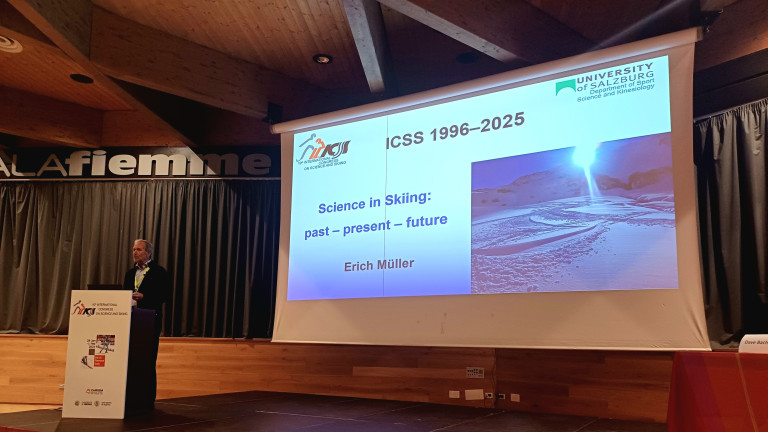
The themes of the presentations reflected a shift from research on training to research on technologies
The trend for the 2020s seems to be strongly technology-driven, which was also reflected in the presentations at the Congress.
"This year, I think we heard far fewer contributions related to training. There is a clear preference for studies related to technology and equipment. Of course, it is understandable that it is challenging to get elite athletes to commit to long-term training research," says Professor Barbara Pellegrini, President of the Congress.
Professor Vesa Linnamo, Head of the Vuokatti Sports Technology Unit, who has attended all the congresses, agreed with Pellegrini's observations.
"We went quite deep into the research on the equipment. There was also a greater emphasis on roller skiing than before."
Linnamo is also a member of the ICSS Executive Board.
Olli Ohtonen, Head of Development at JYU-Vuokatti and, says the most impressive moments were Erich Müller's honorary speech on the history and significance of the Congress and Professor Øyvind Sandbakk's keynote lecture on coaching.
“I particularly liked Sandbakk's holistic approach to coaching. It takes into account many different aspects of coaching an athlete; physical coaching as well as planning and monitoring it, not forgetting that we are coaching people," says Ohtonen, who is also the personal coach of cross-country skier Iivo Niskanen.
The term "skiing" covers cross-country skiing, Nordic combined, ski jumping, biathlon, alpine skiing, snowboarding, freestyle, and ski mountaineering. Paraskiing also had its own congress session. However, Pellegrini would like to see more paraskiing research in the ICSS. She also pointed to the lack of research into ski jumping.
"Compared to previous years, I am a little surprised how few contributions there were on ski jumping. Many of our participants are from countries with a long tradition in ski jumping.”
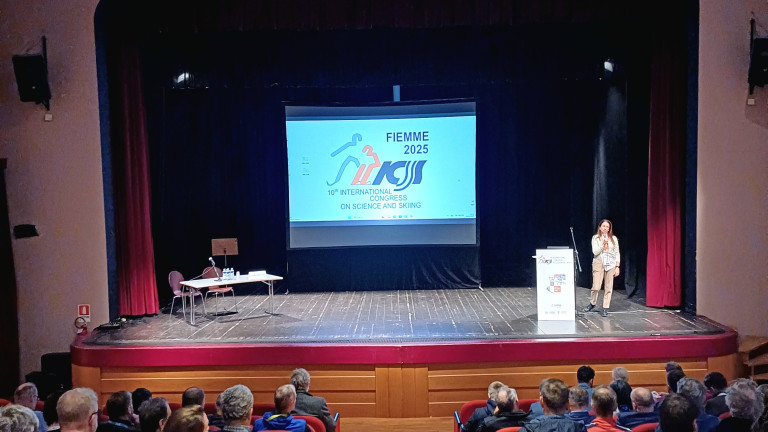
A networking arena, especially for young researchers
The Congress also has an important social function; bringing together the scientific community in the field and helping researchers to network.
"I think it is important that we continue to meet face to face. The ICSS is a great networking opportunity, and we want the event to continue to have a strong foothold and a unique identity," said Pellegrini.
The Young Investigators Award has been running since 2007. 32 oral presentations were submitted to the Young Investigators Competition. Oona Kettunen and Miika Köykkä from JYU-Vuokatti shared third place. The presentations were as follows:
Oona Kettunen, Titta Kuorelahti, Vesa Linnamo, Johanna K. Ihalainen & Ritva Mikkonen. Higher energy availability may support hemoglobin mass adaptation during a 21-day period at normobaric hypoxia and normoxia.
Miika Köykkä, Keijo Ruotsalainen, Vesa Linnamo. A static hold test can assess stability of hold and postural control for biathlon prone shooting
In addition to Kettunen and Köykkä, Professors Vesa Linnamo and Harri Piitulainen, MSc Antti Leppävuori and MSc Ville Sampolahti presented at the congress in Val di Fiemme.
After each congress, the results of the research will be compiled and published either as a book or as a special issue of a scientific journal.
The ICSS will return to Italy in less than two years, as the 30th anniversary congress will be held in Bormio in December 2026. The ICSS has been held once in Vuokatti, in 2019.
